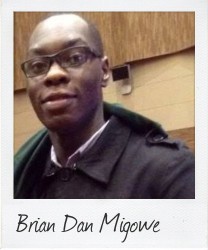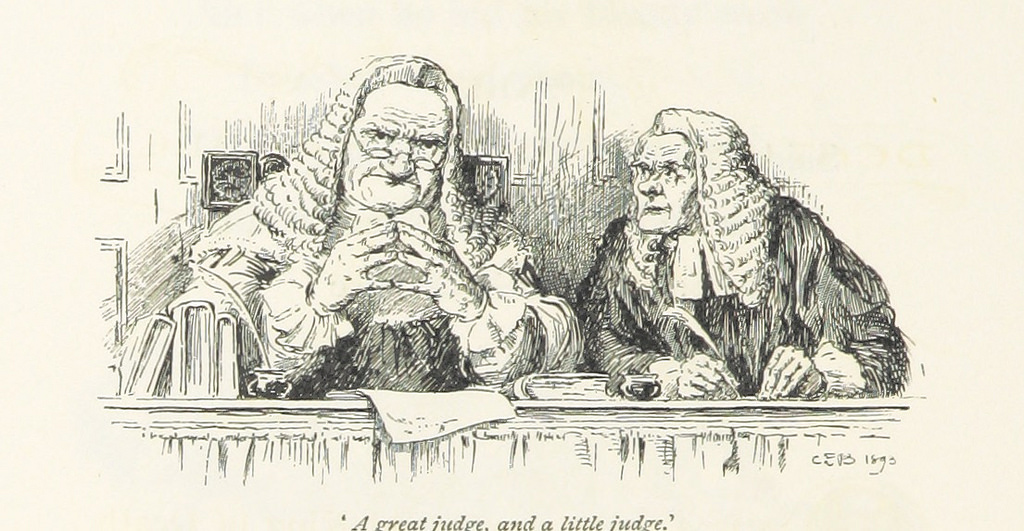“A paradox of debate over retirement age”
July 22 A controversy over retirement age of judges has provoked a political debate, writes Brian Dan Migowe, 25, a Commonwealth Correspondent from Kenya, who argues for open minds and a review of the law around appointments to the Judiciary.
A controversy over retirement age of judges has provoked a political debate, writes Brian Dan Migowe, 25, a Commonwealth Correspondent from Kenya, who argues for open minds and a review of the law around appointments to the Judiciary.
Chapter Ten of Kenya’s Constitution establishes the Judiciary. The Judiciary gets its authority from the people of Kenya. It exercises this authority via courts and tribunals, to interpret and apply the law of the Republic. It ought to do so independently without being subject to any authority except the Constitution and the law.
The people of Kenya expect the Judiciary to be fair, just, and impartial, and to quickly deliver justice. The Judiciary must also actively promote itself as accessible, friendly and affordable.
Judicial authority is exercised through superior and subordinate courts. Superior courts include the Supreme Court, the Court of Appeal and the High Court.
Article 163 of Chapter Ten of the Constitution that establishes the Supreme Court, which has a Chief Justice as president of the court, a deputy chief and five other judges, constituting the total number of Supreme Court judges to seven.
In mid-2011, the court of seven judges convened for the first time in the Supreme Court building, a few steps from the Nairobi county Assembly Hall. Symbolically, the moment was pregnant with promise for the Republic: this birth of a new national institution whose future power, admittedly, still existed only in the mind’s eye of a few farsighted Kenyans.
Impressively bewigged and swathed in their robes of office, Chief justice Willy Mutunga, former deputy Chief Justice Nancy Makokha Baraza(replaced by Justice Kalpana Rawal) and five other Judges, Justice Jacktone Ojwang, Justice Ibrahim Mohamed, Justice Smokin Wanjala, Justice Njoki Ndungu and Justice Tunoi sat augustly before a throng of spectators and waited for something to happen.
Something did happen – the first case filed before the Supreme Court was for the determination of the election date. The Supreme Court declined to issue directions, and referred the matter to the High Court. Chief Justice Will Mutunga read the ruling on behalf of the full bench of seven judges.
On 11th December 2012, the Supreme Court ruled that the one-third gender rule for elective positions provided by the constitution would not be applied in the March 4 General elections of 2013.The ruling was read by Justice Ojwang in the presence of all the judges of the court. Notably, the Chief justice had a dissenting opinion, saying the ruling flew in the face of the struggle by the Kenyan women for gender equality.
These are some of the cases that warmed the court in its infancy stage; notably the new breed of legal minds that were joining the Judiciary; Chief Justice Willy Mutunga, Justice Smokin Wanajala and Justice Njoki Ndung’u.
It is now five years since the establishment of the supreme court and the appointment of its justices, and the glory that was bestowed upon it has been eroded; not by the reluctance of some judges to conduct their duties, but on the character of the subjects that make the court whole and functional. It befits all in mind that an oath sworn counts from the date taken through upon its expected and defined enforceable period.
The Constitution says that a judge shall retire at age seventy, but may elect to retire at any time after the age of sixty-five. Judges of the Supreme Court took judicial oath and affirmation to protect and defend the Constitution of the Republic of Kenya. It is the protection of this Constitution that provides for the affirmation of the retirement age of Judges to be at 70 years. It is the different interpretation of laws that brings a whole dynamism of the understanding of the law itself, but an overcrowded look into a narrow concept breeds confusion that rests with the current situation at the Supreme Court. It is generally unjust and forbidden to apply and look into the law retrospectively.
The tenure for all judges is sacrosanct and not amenable, meaning that this is an important and valuable component of a judge’s contract that should not be interfered with. All judges must retire upon attaining the set retirement age of seventy years.
photo credit: Image taken from page 104 of ‘Humorous Poems … With a preface by A. Ainger, and … illustrations by C. E. Brock. L.P’ via photopin (license)
………………………………………………………………………………………………………
About me: I am a law student with a passion for writing and youth advocacy. I observe people, nature, the environment and daily life and am enthusiastic about sharing them on pen and paper.
I am an open-minded individual who acknowledges the diversity of the world’s population. Sometimes I am awed by how life plays out, but in writing I make the story as I want it. My hobbies are swimming and indoor games.
…………………………………………………………………………………………………………………
Opinions expressed in this article are those of the author and do not necessarily represent the views of the Commonwealth Youth Programme. Articles are published in a spirit of dialogue, respect and understanding. If you disagree, why not submit a response?
To learn more about becoming a Commonwealth Correspondent please visit: http://www.yourcommonwealth.org/submit-articles/
…………………………………………………………………………………………………………………




